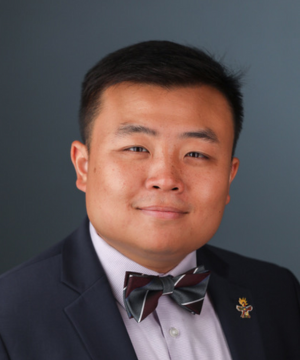Thursday, March 14, 2024 | 11:00 AM EDT - 11:30 AM EDT
The annual meetings of the National People’s Congress (NPC) and Chinese People’s Political Consultative Conference (CPPCC), known as the “Two Sessions” (“Lianghui”), feature the gathering of political leaders in Beijing each spring to announce plans and goals for the coming year. In 2024, faced with concerns over stalling economic growth, increased tension in the South China Sea, and elections in Taiwan and the United States, the Two Sessions has been in the spotlight for both international and domestic audiences. What are the key implications of the 2024 Two Sessions for the state and trajectory of U.S.-China relations?
In an interview conducted on March 14, 2024, Jessica Teets and Jack Zhang discuss the implications of the 2024 Two Sessions for China’s economy, politics, and foreign policy with Mary Gallagher.
Speakers

Jessica Teets
Jessica C. Teets is a professor of political science at Middlebury College, Templeton Fellow for the Asia Program at the Foreign Policy Research Institute, China Program Fellow at the Wilson Center, and a fellow in the NCUSCR Public Intellectuals Program.
Dr. Teets’ research focuses on governance in authoritarian regimes, especially the role of civic participation. She is the author of Civil Society under Authoritarianism: The China Model (2014) and editor (with William Hurst) of Local Governance Innovation in China: Experimentation, Diffusion, and Defiance (2014). She is currently working on a new book (with Dr. Xiang Gao) on changing governance under Xi Jinping, and an edited volume developing a theory of how to lobby dictators (with Dr. Max Grömping).
Professor Teets received her bachelor’s degree from the University of Maryland, master’s degrees from the University of Chicago and the University of Colorado, and doctorate from the University of Colorado.

Jack Zhang
Jack Zhang is an assistant professor of political science at the University of Kansas (KU) and director of the KU Trade War Lab. He is a Public Intellectuals Program fellow with the National Committee on U.S.-China Relations. Dr. Zhang’s research explores the political economy of trade and conflict in East Asia. He is building a new framework for the dynamics of political competition under economic interdependence with the aid of new data. His newest project assesses the political participation of American businesses in the section 301 hearings process to understand why business interests were unable to restrain the Trump administration’s escalation of trade tensions with China. In another project, he and his co-authors explore the political backlash against Chinese economic competition and its implications for the escalating trade war between the United States and China.
He earned his Ph.D. from the University of California, San Diego and his BA from Duke University.
Moderator

Mary Gallagher
Mary E. Gallagher is the Amy and Alan Lowenstein Professor of Democracy, Democratization, and Human Rights at the University of Michigan, and director of the International Institute. She was formerly director of the Lieberthal-Rogel Center for Chinese Studies (2008-2020). Dr. Gallagher’s most recent book is Authoritarian Legality in China: Law, Workers and the State. She is also the author or editor of several other books, including Contagious Capitalism: Globalization and the Politics of Labor in China.
In addition to her academic research, Dr. Gallagher has consulted with governments, international organizations, and corporations on China’s domestic politics, censorship and propaganda system, labor and workplace conditions, and academic collaboration with China. She is a director of the National Committee, and a fellow in the Committee’s Public Intellectuals Program.
Professor Gallagher received her Ph.D. from Princeton University and her B.A. from Smith College. She was an exchange student at Nanjing University in fall 1989.


